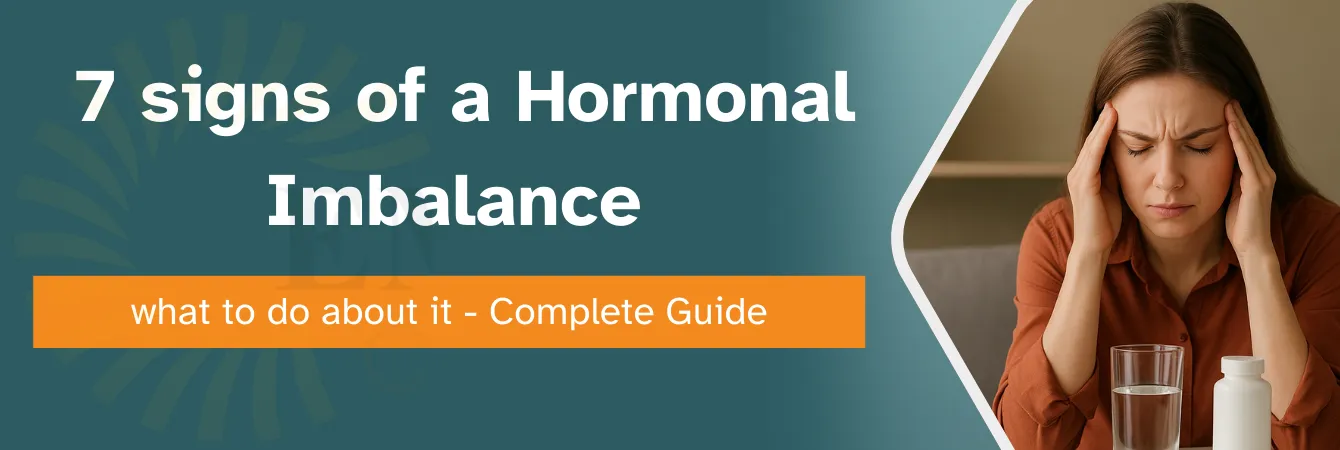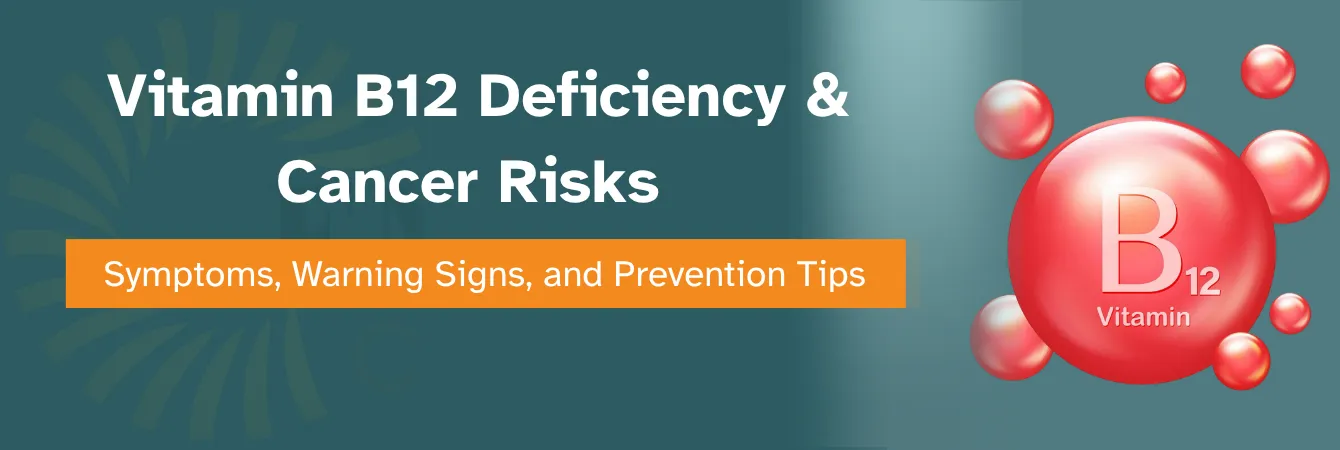7 signs of a hormonal imbalance — what to do about it
- August 18, 2025
- Abrol Hospital
What is a Hormonal Imbalance?
A hormonal imbalance happens when there’s too much or too little of a hormone in your bloodstream. Since hormones regulate everything from metabolism to mood, even a small imbalance can have big consequences.
A hormonal imbalance occurs when the body produces too much or too little of certain hormones. Since hormones are chemical messengers that regulate metabolism, mood, sleep, fertility, and more, even a small shift can create major disruptions. For instance, your thyroid hormones influence metabolism, cortisol handles stress responses, and insulin controls blood sugar. A problem with just one of these can set off a chain reaction across your whole body.
Major Hormones That Impact Health
Insulin: Manages blood sugar and energy use. Too much or too little can cause weight fluctuations or diabetes.
Thyroid Hormones: Control metabolism, body temperature, and energy levels.
Estrogen and Progesterone: Regulate menstrual cycles, fertility, and mood.
Testosterone: Present in both men and women, affects libido, energy, and muscle strength.
Cortisol: Known as the “stress hormone,” it influences energy, sleep, and metabolism.
Melatonin: Governs sleep-wake cycles.
Serotonin and Dopamine: Impact mood, emotional balance, and brain function.
Common Causes of Hormonal Imbalance
Hormones can be disrupted by many factors. Chronic stress is one of the most common, as it keeps cortisol levels abnormally high, which suppresses reproductive and thyroid hormones. Poor diet, especially one loaded with sugar and processed foods, can trigger insulin resistance. Medical conditions like PCOS, thyroid disease, or diabetes directly disrupt hormonal function. Medications, aging, lack of sleep, and even environmental toxins can also play a role.
7 Key Signs of a Hormonal Imbalance
1. Unexplained Weight Gain or Loss
Sudden changes in weight often point toward hormonal disruption rather than lifestyle choices. For instance, if you’re eating the same diet and exercising regularly but still gaining weight, your body may be storing fat due to insulin resistance. Insulin imbalance causes cells to stop responding properly, leading to excess glucose being stored as fat, increasing the risk of type 2 diabetes.
On the other hand, an overactive thyroid (hyperthyroidism) speeds up metabolism, often leading to rapid weight loss, while an underactive thyroid (hypothyroidism) slows metabolism, causing weight gain. Cortisol, another key hormone, can trigger fat storage around the belly during times of chronic stress, also linked to Cushing syndrome.
2. Irregular Menstrual Cycles and Heavy Periods
For women, menstrual health is one of the clearest signs of hormonal balance. If your cycle becomes unpredictable—too short, too long, or completely absent—hormones may be the cause. PCOS (Polycystic Ovary Syndrome) is a major contributor, as it creates an imbalance between estrogen, progesterone, and androgens, leading to missed or irregular cycles.
Thyroid disorders also play a role. An underactive thyroid may cause heavy, painful periods, while an overactive thyroid can lead to lighter or absent periods. Estrogen dominance, where estrogen levels are higher than progesterone, is often linked to heavy bleeding, clotting, and severe PMS symptoms. Women should pay close attention, as these cycle changes are often early signs of deeper reproductive or thyroid issues.
3. Persistent Fatigue and Low Energy
Feeling drained even after a full night’s rest is a common but often overlooked sign of hormonal imbalance. This isn’t the usual tiredness after a long day—it’s a persistent exhaustion that doesn’t improve with sleep. One culprit is adrenal insufficiency, where the adrenal glands fail to produce enough cortisol, leaving you constantly fatigued.
A sluggish thyroid (hypothyroidism) can also slow down your metabolism, leading to brain fog, low motivation, and reduced stamina. Meanwhile, high levels of cortisol from chronic stress may initially make you feel “wired” but eventually lead to burnout and extreme tiredness. Unlike normal tiredness, hormonal fatigue feels never-ending, often affecting concentration and productivity.
4. Skin Issues — Acne, Dry Skin, and Skin Tags
Your skin is a mirror of your hormonal health. For example, hormonal acne usually appears around the jawline, chin, or back and is linked to increased testosterone or estrogen imbalance. Unlike teenage acne, adult hormonal acne is stubborn and resistant to normal skincare treatments.
Dry skin can indicate low thyroid function since thyroid hormones help regulate skin cell turnover and oil production. Meanwhile, skin tags, those tiny harmless growths, are commonly associated with insulin resistance. This is why people with prediabetes or diabetes often notice an increase in skin tags, especially around the neck or underarms.
5. Sleep Problems and Insomnia
Struggling to fall asleep or waking up repeatedly at night can be a hormonal issue. Cortisol should naturally be higher in the morning and lower at night, but stress can flip this cycle, keeping you awake when you should be resting. This leads to insomnia and restless nights.
Thyroid imbalances can also disrupt sleep. Low thyroid hormones make you feel drowsy during the day but restless at night. Meanwhile, low melatonin production directly impacts your ability to fall asleep. Sleep disturbances caused by hormonal imbalance often go hand-in-hand with anxiety, depression, or mood swings, making the cycle even harder to break.
6. Low Libido and Sexual Health Issues
A sharp decline in sex drive is often hormonal, not just psychological. Low testosterone in men and women is one of the leading causes of reduced libido, decreased energy, and weaker orgasms. For women, low estrogen can cause vaginal dryness, painful intercourse, and difficulty conceiving.
In men, testosterone deficiency may contribute to erectile dysfunction. Hormonal imbalance can therefore affect not just physical intimacy but also emotional connection in relationships, leading to frustration for both partners. If you’re struggling with unexplained changes in sexual health, hormones are often the missing piece of the puzzle.
7. Emotional Health — Depression, Anxiety, and Mood Swings
Mood and hormones are deeply connected. Estrogen plays a role in producing serotonin, the “feel-good” brain chemical, and when estrogen levels drop (such as before periods or during menopause), mood swings and depression can follow. Similarly, low progesterone can lead to anxiety, irritability, and poor sleep.
High cortisol from chronic stress can also throw emotions out of balance, leaving you constantly on edge. Over time, this imbalance contributes to depression and anxiety disorders. Unlike occasional stress or sadness, hormonal mood issues are persistent, cyclical, and often accompanied by other physical symptoms like fatigue or sleep troubles.
What to Do About Hormonal Imbalance
Lifestyle Changes
Start with the basics: a balanced diet full of protein, vegetables, healthy fats, and fiber. Regular exercise improves insulin sensitivity and reduces stress hormones, but overtraining can actually worsen imbalances. Managing stress through yoga, meditation, or even simple breathing exercises helps normalize cortisol levels.
Medical Treatments
In some cases, medical support is necessary. Hormone Replacement Therapy (HRT) can help with menopause or low testosterone. Thyroid medications balance metabolism, while diabetes treatments restore insulin control. Doctors may also prescribe birth control or fertility treatments to regulate cycles in women with PCOS.
Natural Remedies and Supplements
Certain natural remedies can help balance hormones. Ashwagandha is known for reducing stress and lowering cortisol. Maca root supports energy and libido. Vitamin D, magnesium, and omega-3 fatty acids are crucial for overall hormonal health. However, supplements should be used alongside—not instead of—medical advice.
When to See a Doctor
If you notice sudden weight changes, missed periods, persistent fatigue, or mood swings, it’s time to consult a professional. Early diagnosis makes treatment more effective and prevents long-term complications like infertility, heart disease, or diabetes.
Hormonal imbalances can feel overwhelming because they affect nearly every aspect of life—your energy, mood, skin, weight, and even relationships. But the good news is that recognizing the signs early and taking the right steps can help you get back on track. From lifestyle changes to medical treatments, there are many ways to restore balance and feel like yourself again.
FAQs (Frequently Asked Questions)
Yes, chronic stress raises cortisol, which disrupts reproductive and thyroid hormones, eventually leading to fatigue, weight gain, and mood issues.
Choose whole foods: lean proteins, leafy greens, nuts, seeds, olive oil, and complex carbs. Avoid processed foods and refined sugars.
Mild imbalances may improve in weeks with lifestyle changes, while severe cases may take months of medical treatment.
Yes, conditions like PCOS, thyroid disease, and low testosterone are common causes of infertility in both men and women.
Yes, for mild cases—through diet, stress management, exercise, and supplements. However, severe imbalances often require medical treatment.



